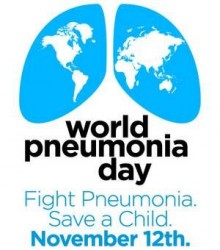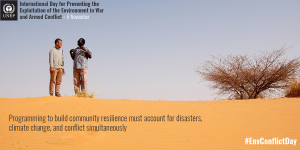 The United Nations’ (UN) Universal Children’s Day, which was established in 1954, is celebrated on November 20 each year to promote international togetherness and awareness among children worldwide. UNICEF, the United Nations Children’s Fund, promotes and coordinates this special day, which also works towards improving children’s welfare.
The United Nations’ (UN) Universal Children’s Day, which was established in 1954, is celebrated on November 20 each year to promote international togetherness and awareness among children worldwide. UNICEF, the United Nations Children’s Fund, promotes and coordinates this special day, which also works towards improving children’s welfare.
Background
On December 14, 1954, the UN General Assembly recommended that all countries should introduce an annual event from 1956 known as Universal Children’s Day to encourage fraternity and understanding between children all over the world and promoting the welfare of children. It was recommended that individual countries should choose an appropriate date for this occasion.
At the time, the UN General Assembly recommended that all countries should establish a Children’s Day on an “appropriate” date. Many of the countries respected this recommendation and the Universal Children’s Day has since been annually observed on November 20. There are however, some countries, such as Australia and India, which still chose various different dates during the year to celebrate this day.
On November 20, 1959, the UN General Assembly adopted the Declaration of the Rights of the Child and on November 20, 1989, it adopted the Convention on the Rights of the Child. Since 1990, Universal Children’s Day also marks the anniversary of the date that the UN General Assembly adopted both the declaration and the convention on children’s rights.


 “Now learn this lesson from the fig tree…”
“Now learn this lesson from the fig tree…” The United Nations’ (UN) International Day for Tolerance is annually observed on November 16 to educate people about the need for tolerance in society and to help them understand the negative effects of intolerance.
The United Nations’ (UN) International Day for Tolerance is annually observed on November 16 to educate people about the need for tolerance in society and to help them understand the negative effects of intolerance. Ready to start recycling?
Ready to start recycling?  World Pneumonia Day is annually held on November 12 to raise awareness of pneumonia, promote prevention and treatment, and generate action to fight the illness.
World Pneumonia Day is annually held on November 12 to raise awareness of pneumonia, promote prevention and treatment, and generate action to fight the illness.
 Ever picked up a product, excited to get it home, only to find out that when you open the box and put it to its intended task for the first time it just falls apart? Or called in to get technical support and you pretty much just get a set of read out responses rather than the assistance of people who are actually knowledgeable in their subject? These terrible experiences just enhance the absolute necessity of quality in every aspect of business.
Ever picked up a product, excited to get it home, only to find out that when you open the box and put it to its intended task for the first time it just falls apart? Or called in to get technical support and you pretty much just get a set of read out responses rather than the assistance of people who are actually knowledgeable in their subject? These terrible experiences just enhance the absolute necessity of quality in every aspect of business. Though mankind has always counted its war casualties in terms of dead and wounded soldiers and civilians, destroyed cities and livelihoods, the environment has often remained the unpublicized victim of war. Water wells have been polluted, crops torched, forests cut down, soils poisoned, and animals killed to gain military advantage.
Though mankind has always counted its war casualties in terms of dead and wounded soldiers and civilians, destroyed cities and livelihoods, the environment has often remained the unpublicized victim of war. Water wells have been polluted, crops torched, forests cut down, soils poisoned, and animals killed to gain military advantage. The United Nations attaches great importance to ensuring that action on the environment is part of conflict prevention,
The United Nations attaches great importance to ensuring that action on the environment is part of conflict prevention,  World Kindness Day was first launched in 1998 by The World Kindness Movement, an organisation formed at a 1997 Tokyo conference of like-minded kindness organisations from around the world.
World Kindness Day was first launched in 1998 by The World Kindness Movement, an organisation formed at a 1997 Tokyo conference of like-minded kindness organisations from around the world.